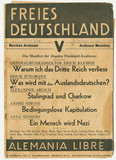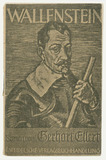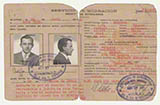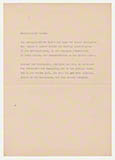Bodo Uhse
Ich habe in dieser Nacht wieder von Deutschland geträumt. Wie ich hingekommen bin, weiß ich nicht mehr. Als ich dort war, bemerkte ich erst, daß ich keinen Paß hatte, keine Papiere, daß ich nirgendwo eine Unterkunft bekommen konnte und daß es keine Hoffnung für mich gab, wieder herauszukommen. […] Es war ein beängstigender, beunruhigender Traum. Mit geringen Abweichungen wiederholt er sich immer wieder.
[Last night I dreamed again of Germany. How I got there, I no longer recall. Only upon arrival did I notice that I had no passport, no papers, that I could not find a hotel anywhere and that there was no hope for me of getting back out. [...] It was a frightening, disturbing dream. It recurred over and over, with minor variations. (ed. trans.)]
Bodo Uhse, diary entry, Santa Monica, 3 January 1940
| Born | on 12 March 1904 in Rastatt (Baden), German Empire |
|---|---|
| Died | on 2 July 1963 in Berlin, German Democratic Republic |
| Exile | France, Spain, United States of America, Mexico |
| Remigration | German Democratic Republic |
| Profession | Writer |
Bodo Uhse began to write stories and poems from early on, before turning mainly to journalism from 1927. In his youth in southern Germany he underwent a political transformation. He came from the nationalist youth movement of the Bamberger Bund (until 1923) and had even joined a wing of the NSDAP as editor of a newspaper in Ingolstadt. However, he cancelled his membership in 1930 before joining the communist farmer's movement in 1931. Uhse fled Germany after the Reichstag fire in 1935 to Paris where he became an exile member of the KPD. He discussed this development in his autobiographical novel Söldner und Soldat (1935). From 1936 to 1937 he fought in the Spanish Civil War on the Republican side. He explored this experience in the novel Leutnant Bertram (1943).
In June 1939 he attended the congress of the League of American Writers in New York, after which he travelled for several months through the USA. In March 1940, he went into exile in Mexico. He lived in Cuernavaca and Mexico City. Initially he was active in the Liga Pro-Cultura Alemana. He was literary editor of the Freies Deutschland magazine in Mexico and one of the founders of the Heinrich Heine-Klub.
In 1948, accompanied by his wife Alma Agee, an American he had met in Mexico, Uhse returned to Germany where he lived in the Soviet Zone and the GDR. From 1949 to 1958 he was editor-in-chief of the monthly magazine Aufbau. At the end of 1962 he succeeded Peter Huchels at the journal Sinn und Form. Following a number of disappointments in the GDR, but also influenced by his years of exile, he returned in his last short stories to Mexican themes.
Selection of major works:
Söldner und Soldat (Autobiografischer Roman, 1935)
Leutnant Bertram (Roman, 1943)
Mexikanische Erzählungen (1957)
Sonntagträumerei in der Alameda und andere Erzählungen (1961)
Further reading:
Hanffstengel, Renata von: Mexiko im Werk von Bodo Uhse. Das nie verlassene Exil. New York et al.: Peter Lang Verlag 1995.
Caspar, Günter: Über Bodo Uhse. Ein Almanach. Berlin und Weimar: Aufbau-Verlag 1984.







